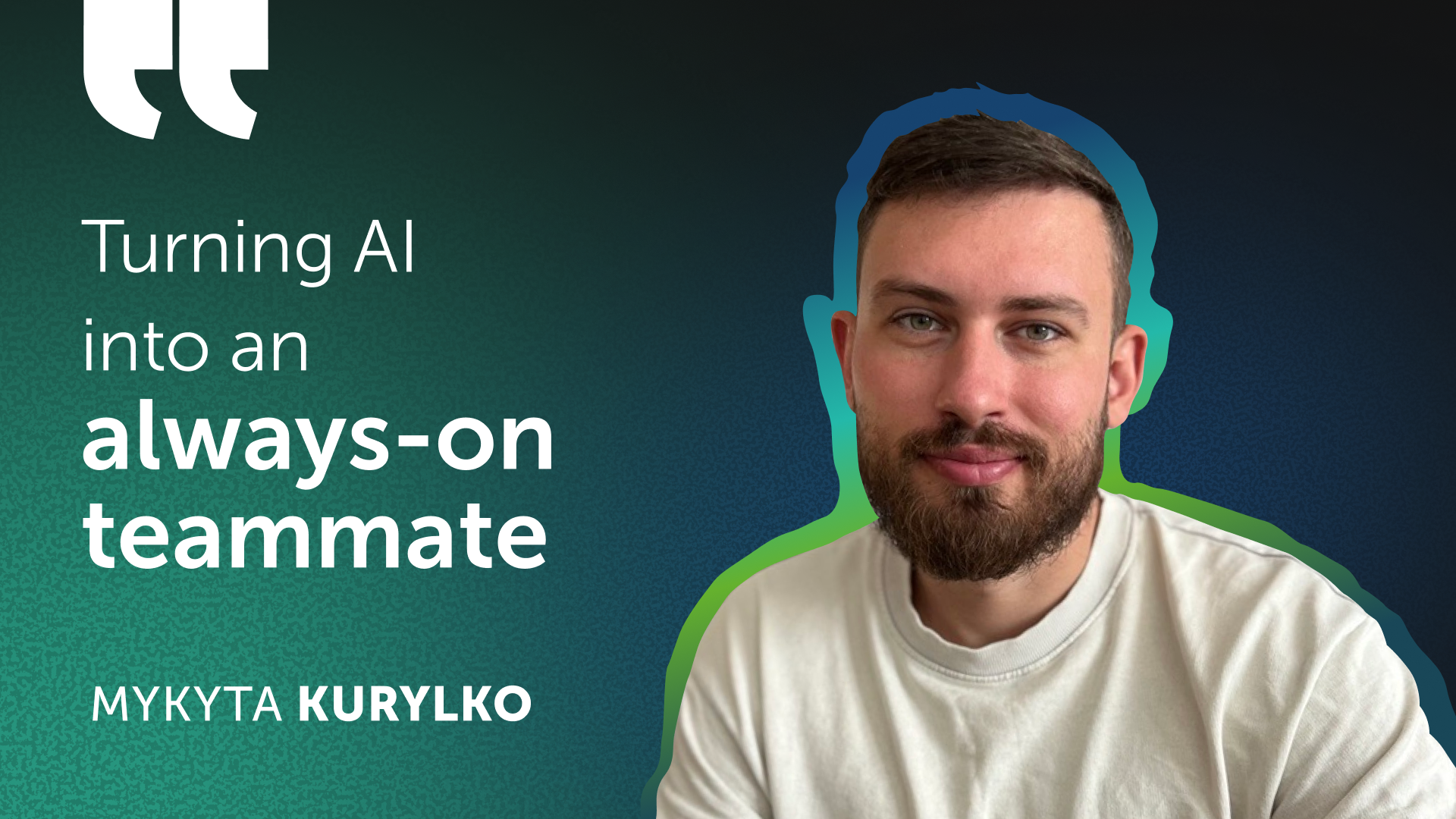Turning AI into an always-on teammate
Together with FR Media, we’re continuing our series of inspiring stories from tech experts about their journey into AI. Mykyta Kurylko, a Lead Software Engineer at EPAM, shares his thoughts on how AI is transforming the way developers work, learn, and innovate.

“The support for JavaScript developers integrating AI into their workflows is limited”
— I’m a Team Lead at EPAM and one of the creators of the GenAI Practical Application Development with JavaScript course. Right now, we’re using AI to help migrate a large codebase.
What shaped my perspective on AI was realizing just how little support there is for JavaScript developers integrating AI into their workflows. Python and other languages have plenty of guides, but JavaScript still lacks the same level of hands-on resources, even though it has great libraries for microservices. That gap motivated me to work on this course. My goal was to give developers real-world, practical experience with AI. That idea is what keeps me inspired.
“Microsoft Copilot was the starting point of my AI exploration”
— My journey into AI started when I tried Microsoft’s Copilot beta. It allowed me to write prompts directly in the code editor and quickly generate small utilities that saved time. The first versions of GPT were released, and that became the real starting point of my AI exploration.
Then, I was really surprised when I connected Figma to Cursor through an MCP server. It started turning designs into code almost instantly. Sure, the code wasn’t perfect, but it worked — and that was mind-blowing.
It hit me that soon, we might be able to build entire applications just by talking to a computer in plain language.
“The most important skill will be asking the right questions”
— As AI evolves, I believe the most important skill will be the ability to ask the right questions. AI can provide answers quickly, but if you don’t know how to clearly explain what you need or understand the context, the output won’t be useful.
Good communication, critical thinking, and strong engineering skills will become even more essential. These are the skills that turn AI from a random tool into a real problem-solver. And don’t forget your core skills: the better you are at understanding problems and building solutions, the more AI can amplify what you do.
To stay relevant, don’t wait for someone to hand you a perfect AI workflow. Try different tools, experiment, break things, and figure out what works for you.
I’d suggest subscribing to Alpha Signal, a newsletter that’s great for staying updated on the latest AI trends and tools.
“AI becomes an always-on teammate”
— Looking to the future, I hope AI will take over most of the boring, repetitive tasks so people can focus on creativity, problem-solving, and building things that truly matter.
In my ideal vision, AI becomes a kind of always-on teammate — one that understands context, learns from you, and helps you turn ideas into reality faster than ever before. This wouldn’t just make work more productive; it would also make it a lot more fun.
“The Matrix and Black Mirror make me think about where AI could take us”
— I’d say my favorite AI-related media is The Matrix and Black Mirror.
The Matrix blows my mind with its depiction of machines shaping reality, while Black Mirror takes it further with stories that feel just one step away from our world today. Both make you think about where AI could take us — in amazing and sometimes scary ways.

_(1).png)
.png)